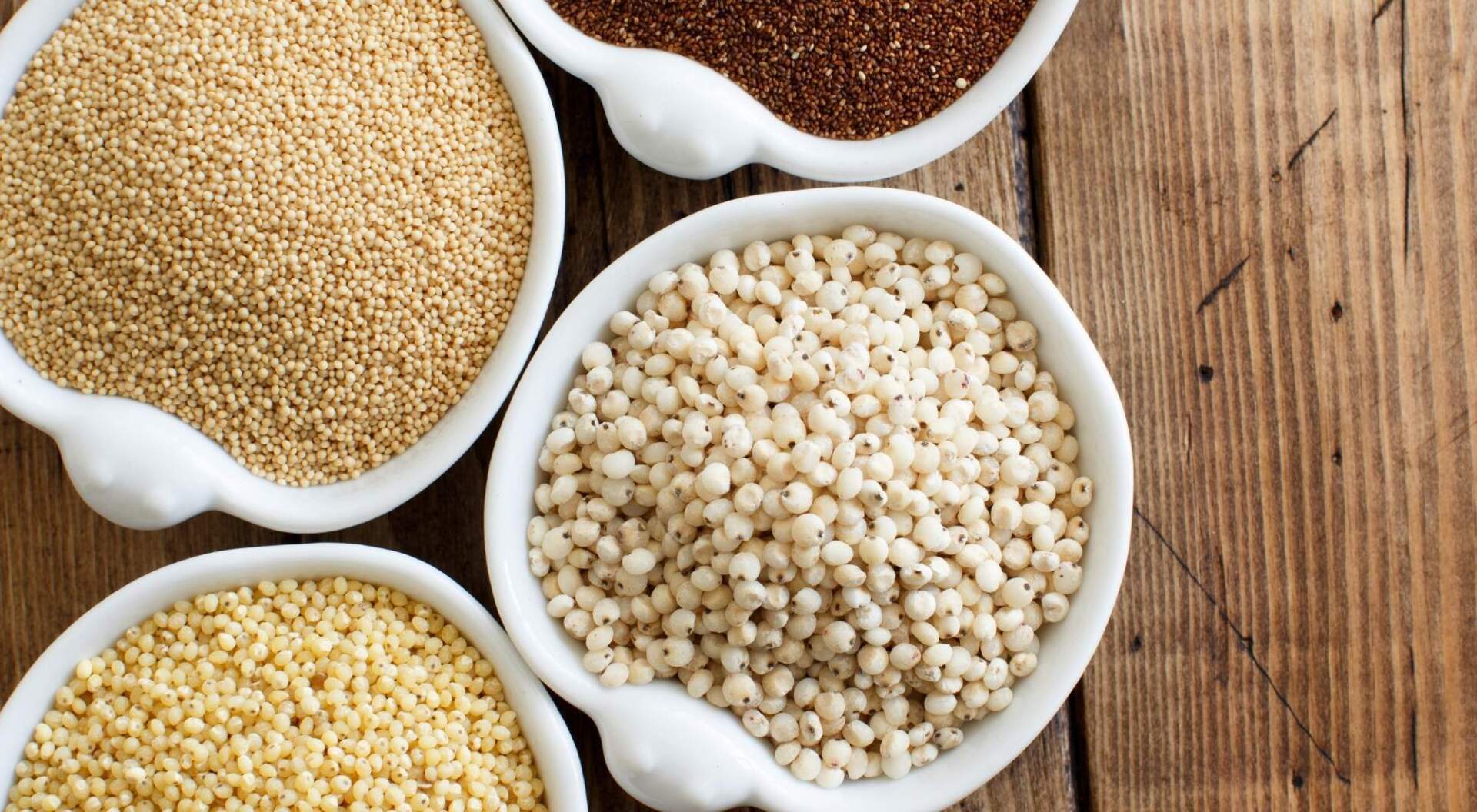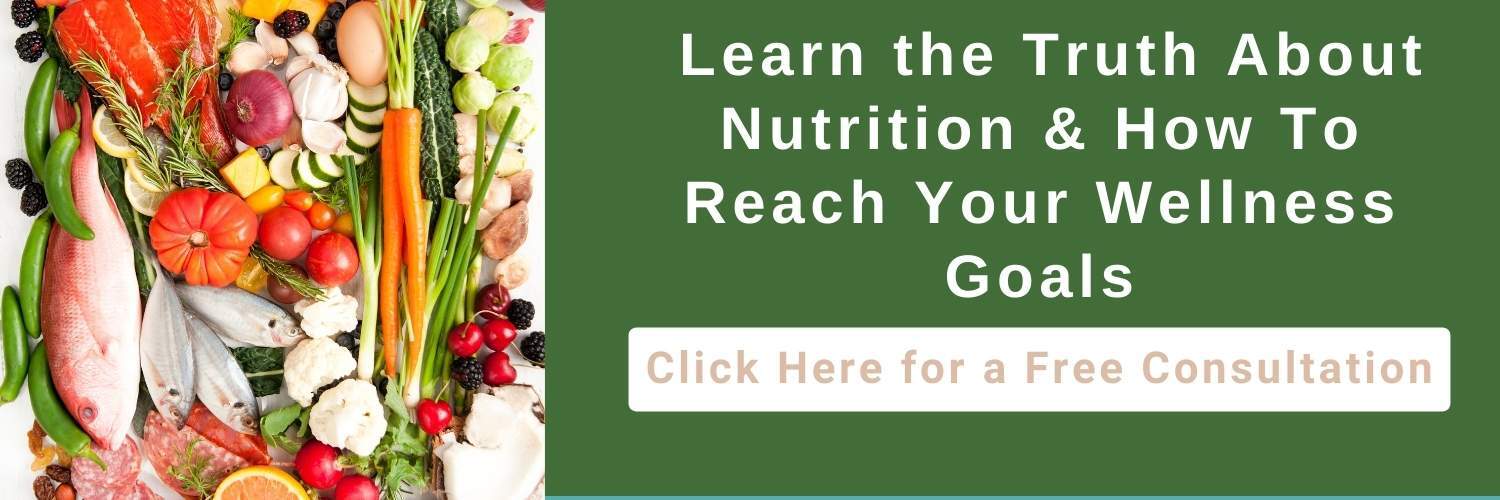Facts and Myths About Nutrition: What’s Fiction and What’s Fact?
"The content below is not intended to be a substitute for professional medical advice, diagnosis, or treatment. Always seek the advice of your physician or other qualified health provider with any questions you may have regarding a medical condition."
Are you trying to understand which foods are best for you and your health goal?
Nutrition is a tricky topic to navigate.
There's always new information making big promises about how "this food" will help you lose weight faster and "that food" can increase your metabolism.
How do you know what's fact or fiction? What if you don’t have time to research for yourself?
In this guide, we will confront and bust nine of the biggest nutrition myths, and provide you with the information you need to make choices regarding what foods you consume for your health.
Table of Contents
9 of the Biggest Nutrition Myths Busted
Nutrition is one of the most challenging aspects of life, and it deserves our attention.
It can be overwhelming to stay on top of all the latest research, and it's tough to figure out how we should change our diets when we want so badly for them to work.
When faced with these challenges, it's easy to start believing myths that sound good but are actually bogus.
It's time to separate the myths from the facts.
Nutrition Myth #1: Gluten-Free = Healthy
Millions of people buy gluten-free products because they think it's healthier, but are they 100% certain it's for the right reasons?
Some people may believe that gluten-free products are healthier because they’re free of wheat and other grains. However, this is not always the case.
The myth likely originated from a study that was published by Dr. Alessio Fasano, who said that people on gluten-free diets often lose weight because they cut out all types of carbohydrates.
So while gluten-free diets may be helpful for some people when trying to lose weight, they should not be considered a healthy option overall.
According to John Hopkins Medicine, some people should avoid gluten, such as those with:
- Celiac disease
- Gluten ataxia
- Wheat allergies; and
- Non-celiac gluten sensitivity (gluten intolerance)
There is no evidence that going gluten-free is healthier than eating a balanced diet.
Fact: Gluten Isn’t Unhealthy
Gluten isn’t necessarily bad for you.
Some people benefit from having gluten in their diet because gluten:
- Provides important nutrients, such as protein and fiber
- Works as a prebiotic, supplying “good” bacteria in our bodies; and
- Is found in whole grains, which are linked to lower instances of diabetes and heart disease
So while gluten isn’t necessary for everyone, it’s not harmful and can have some benefits.
Nutrition Myth #2: Physical Activity Is More Important Than Diet in Weight Loss
The myth that you don't have to watch what you eat and can just rely on exercise to lose weight is constantly recurring.
Too many people believe in this myth, as it convinces them that they don't need to change their eating habits.
Physical activity is a key part of any weight loss plan, but it is not the only factor.
Where did this myth originate?
The myth that physical activity is the only key to weight loss began in the early 1900s when doctors and nutritionists promoted a low-fat diet as the best way to prevent heart disease.
These days, many people still believe that physical activity is the only way to lose weight, but this is not true.
Fact: It’s All About Balance
Research has shown that diet and exercise are both important for weight loss.
When it comes to losing weight, there’s no one-size-fits-all approach. What works for one person might not work for another.
That’s why it’s important to find a healthy balance between diet and exercise by:
- Paying attention to the calorie content of the foods you eat; and
- Exercising regularly to burn calories and reduce your risk of obesity and other diseases
And remember, it's always important to balance out your food choices with plenty of fruits and vegetables too.
Nutrition Myth #3: Fat-Free or Low-Fat Dairy Products Are Healthier Than Full Fat
We've heard it before — switch to low-fat or fat-free dairy products because they are healthier.
While some people may choose to limit their intake of saturated fat, there is no evidence to support the idea that fat-free or low-fat dairy products are a better alternative.
The myth that low-fat dairy products are healthier than full-fat versions originated with the low-fat diet craze of the 1970s and 1980s.
These days, many people still believe this myth, but there is no clear evidence to support it.
Low-fat products may be harmful because they often contain added sugar and unhealthy fats.
Fact: Whole Milk Is a Beneficial Component of a Nutritious Diet
Whole milk is a beneficial component of a healthy diet.
The Dairy Fat Paradox study shows that full-fat dairy products are better for your health because they provide more ...
- Nutrients
- Antioxidants; and
- Satiety
... than its fat-free counterpart.
Yes, whole milk is high in saturated fat and cholesterol.
But these nutrients are beneficial to the body, helping to promote strong bones and teeth, as well as a healthy immune system.
Nutrition Myth #4: Low-Calorie Diets Are the Best Way to Lose Weight
There is no one-size-fits-all answer to how many calories you should eat to lose weight.
For example, if a 225 lbs. bodybuilder is trying to cut weight. His caloric needs will vary greatly from a 225 lbs. sedentary high school student.
Why is that?
The number of calories you burn will vary depending on your:
- Age
- Weight
- Metabolism; and
- Activity level
The belief that low-calorie diets are best for weight loss started to take hold in the 1970s and 1980s. This was around the same time the full-fat vs. low-fat dairy debate was taking hold in the food and diet industry.
Amazingly, most people assume low-calorie diets are the best way to lose weight.
Fact: Low-Calorie Diets Are Not Ideal for Long-Term Weight Maintenance
Studies have shown that a low-calorie diet can lead to weight loss in the short term but is not ideal for long-term weight maintenance.
Low-calorie diets can lead to:
- Weight gain
- Health problems; and
- Increase the risk of disordered eating
Low-calorie diets are very restrictive, which can lead to cravings and even starvation mode.
When you are deprived of food, your body will start to store calories as fat to survive.
Ironically, several peer-reviewed medical studies have found that people who followed a low-calorie diet were more likely to have an unhealthy weight or be obese than those who didn’t follow a low-calorie diet.
Are you looking to lose weight, but don’t know where to start?
Contact
HealthierU today to begin talking with a professional about your wellness goals.
Nutrition Myth #5: Eating Eggs Causes High Cholesterol
Eggs have been part of the human diet for centuries, but nutrition myths have surfaced that caused people to question their health.
Eggs have been blamed for causing high cholesterol levels for years, but there is no evidence to support this claim.
Back when cholesterol was thought to be the cause of heart disease, eggs were demonized.
However, more recent research has shown that cholesterol levels are not related to heart health, and eating eggs does not increase your risk for heart disease.
Studies have also found that people who ate eggs had lower rates of cardiovascular diseases and stroke.
Fact: Eggs May Not Have an Effect on Your Blood Cholesterol
Eggs have been extensively researched for their effect on blood cholesterol, and there is no evidence to support the claim that eggs have a significant impact on your blood cholesterol levels.
A study published in Harvard Health found that eating eggs "might help your heart, not harm it."
Another study published in the journal Heart found that people who ate eggs regularly had a lower risk of heart disease than people who avoided eggs.
Nutrition Myth #6: Microwaving Foods Lowers Their Nutrient Content
If you love to microwave your food, then you'll want to know what this myth is all about. Microwaving food has long been taboo because it's believed to deteriorate the nutritional content.
The argument here is that microwaves heat your food unevenly and turn the molecules into something toxic and harmful.
But microwaving foods does not reduce their nutrient content.
The theory that microwaving destroys nutrients is based on a false understanding of how microwaves work.
Microwaves heat food from the inside out, not the outside in.
This means that any water or moisture in the food is vaporized and released into the air, doing nothing to damage the food's nutrients.
Fact: Microwaving May Actually Preserve the Nutrients in Food
A recent study published in the International Journal of Food Sciences and Nutrition found that microwaving may preserve the nutrients in food.
The study tested the effects on nutritional value when using different cooking methods on mushrooms.
The research found that microwaving was one of the best ways to preserve the nutritional content of mushrooms.
Nutrition Myth #7: Organic Food Is Better for You
All too often, information on food nutrition is conflicting and confusing, leading consumers to decide that organic food is better for them.
But what if you find out that organic food is the one you should be avoiding?
In the past decade, organic food has been touted as being better for you because it doesn't contain pesticides or other chemicals.
But some researchers suggest that organic foods may be less nutritious than conventional foods.
Fact: Organic Doesn’t Mean Healthier
Organic farming does not always mean that the food is healthier than conventionally grown food because:
- Organic farming can still use harmful chemicals and pesticides; and
- Conventional foods and organic don't differ much in their nutritional value
For more details, check out the article "Are Organic Foods Really Healthier?", published by UC Davis Health.
Nutrition Myth #8: Natural Sugars Are Better for You Than Added Sugars
There is a lot of debate over whether natural sugars are better for you than added sugars.
Some people believe ...
- Natural sugars are healthier because they come from plants; and
- Others argue added sugars are worse for you
... because they are processed and contain lots of additives.
The truth is that it’s important to read the ingredients list on food labels to make sure you’re consuming the right amount of sugar — no matter if it's natural sugars or not.
Fact: Natural Sugars and Added Sugars Are Metabolized the Same Way
According to Harvard Health, natural sugars and added sugars are metabolized the same way.
All sugars are broken down into ...
- Glucose; and
- Fructose
... which are then used by the body for energy.
Therefore, whether natural sugars or added sugars are consumed, the body will metabolize and use them all the same way.
It is best to limit all sources of added sugar, including naturally occurring sugars like those in fruit and vegetables, to within the recommended intake level.
One type of sugar isn't better than another in terms of health.
Nutrition Myth #9: Everyone Should Drink 8 Glasses of Water a Day
Drinking water is essential for healthy living, but the notion that people should drink 8 glasses a day can be misleading.
There is no evidence that drinking eight glasses of water a day is beneficial for overall health.
Many health experts believe that excessive water consumption can:
- Increase risk of heart disease
- Cause electrolyte imbalance; and
- Lead to water retention/weight gain
So while it is important to drink plenty of water throughout the day, drinking eight glasses a day is not necessarily the best way to achieve this goal.
Fact: Every Person’s Water Requirements Vary
We need water for nearly every function in the body, so it's important to make sure you are drinking enough water
But every person’s water requirements vary.
For example, a person who weighs 150 pounds may need up to 2 gallons of water per day, while a person who weighs 300 pounds may only need 1 gallon of water per day.
It truly depends on activity and each person’s body and needs in a moment, for example:
- If you’re thirsty, drink water
- If it’s hot, drink a little more; or
- If you don’t feel thirsty as often, don't force it
HealthierU: Helping Clients Learn the Truth About Nutrition & Maintain Their Health Naturally
There are so many health myths that often misguide our minds against the true meaning of a healthy lifestyle, and it is difficult to find credible information.
HealthierU is changing the way we receive nutrition information, and we're here to help you understand the truth about nutrition and live a healthier lifestyle.
You'll learn how to maintain weight-loss goals with customized nutrition programs and receive the most current research on the benefits various foods can have on your body.
Are you ready to learn more about how nutrition affects your body?
Contact us at HealthierU to book your free consultation.






